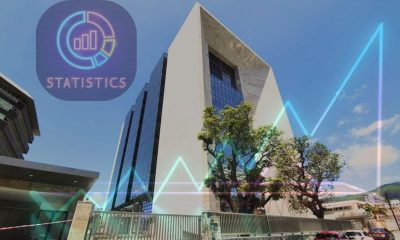News
100+ Cases Wait as Courts Shut Down Amid Flooding

Following heavy rains and floods that paralyzed many regions on Sunday, the judiciary system once again came to a standstill with a day off, impacting both the public and private sectors of the legal field.
With no infrastructure in place to manage remote procedures, the courts remained deserted, leaving hundreds of cases pending and causing confusion among professionals and litigants who, until yesterday morning, were still unsure whether they should appear in court with the lifting of the meteorological alert.
Despite the alert being lifted, the courts did not resume their activities yesterday.
However, a lack of official communication and clear directives caused confusion among many people. “It was total confusion.
Many people didn’t even know if they should travel to court because there was no alert, and activities seemed to have resumed normally in many sectors.
Clients called me to confirm if their cases would be heard,” said one lawyer.
As a result, all cases scheduled for yesterday were postponed, adding an extra burden to an already busy schedule.
“It’s a very frustrating situation. We had about a hundred cases on the agenda at the New Court House, all postponed without a specific date. It’s only today that we will work on the new appearances. Although we are asked to work from home, for clerks and court officers, it’s impossible,” explained an employee at the Port Louis court.
The Supreme Court was not affected by this forced day off as it is already on holiday.
This temporary paralysis raises serious questions about the resilience and adaptability of our judicial system in times of crisis.
Lawyers and magistrates, accustomed to working in the physical presence of all parties involved, are now unable to progress on their cases.
The problem doesn’t stop there. Prosecution lawyers, in particular, face a major challenge: access to their files. “All our files are in the office, and without access to them, it’s impossible to work effectively from home or even prepare for the following days,” said a prosecution lawyer.
This situation not only highlights the limitations of the current infrastructure but also underscores the urgent need for digitalization of the judicial system.
The accumulated delays have consequences for the parties involved in ongoing cases. The uncertainty about new trial dates adds stress and frustration for litigants, who are often already in difficult situations.
“In the meantime, we are doing our best to inform all parties involved as soon as we have news, but it all depends on the courts’ ability to manage this backlog,” concluded a clerk.
The Mauritius Bar Association informed all its members that the Master & Registrar of the Supreme Court had informed the association that there would be a “physical closure of all Courts” on Monday, April 22nd. For urgent cases and more information, lawyers are asked to contact the different Court Managers.
“Since January 2023, remote hearings for chambers cases have already been a reality, demonstrating the feasibility of this method.
On the other hand, the Commercial Division of the Supreme Court, already equipped with its e-filing system, confirms that technology can be successfully integrated into the judicial system.
Hearings at the Bail and Remand Court are done via videoconference and are functioning well.
The judiciary thus has the opportunity to refine and expand these already existing systems to alleviate the current backlog,” emphasized Mr. Nabiil Kaufid.
The floods over the weekend serve as a clear warning: it is time to rethink and innovate in our approach to justice to ensure that the law can be administered effectively and without interruption in all circumstances.
Source: l’Express











